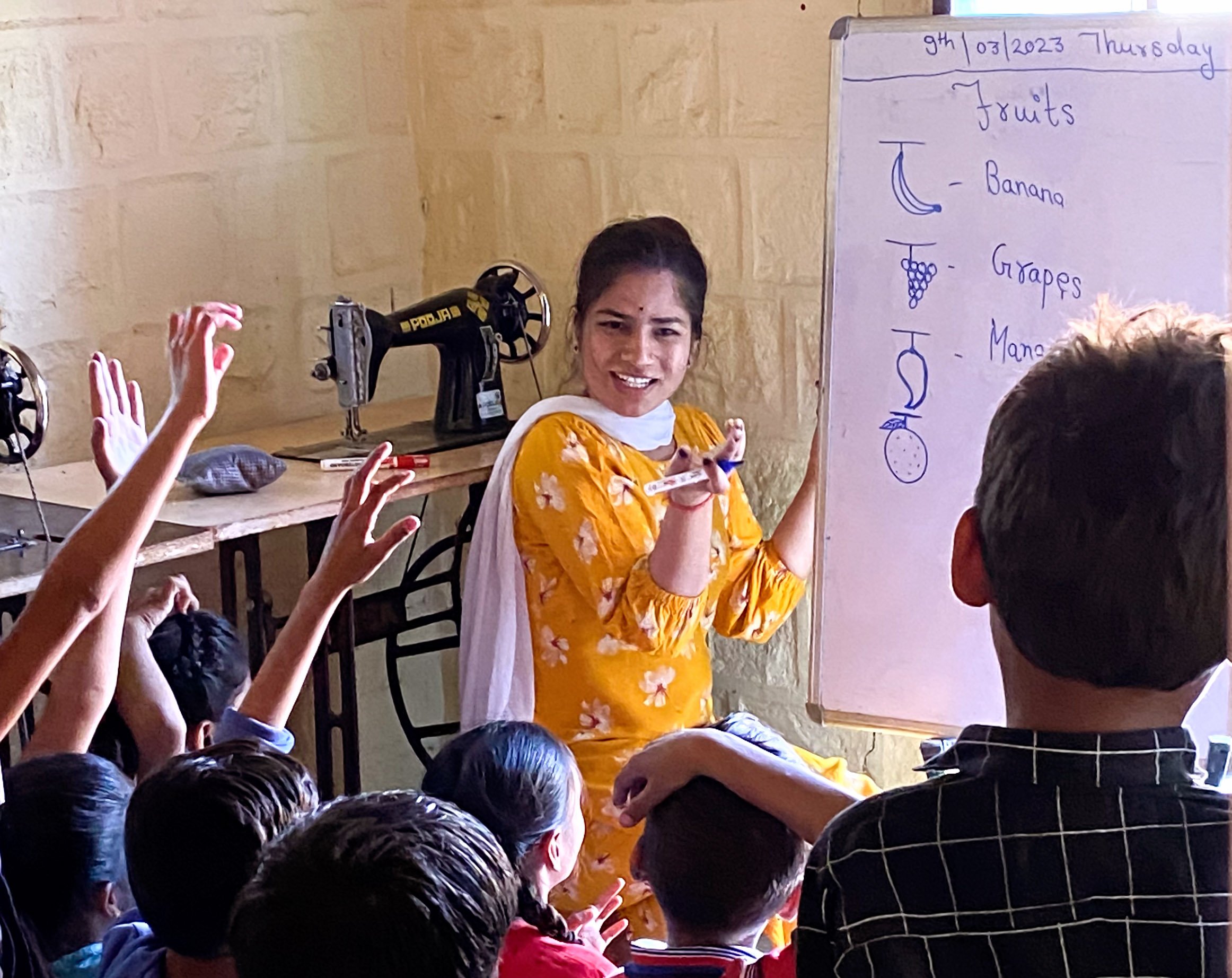In Conversation with Samta and Sonu: The role of Sambhali in a sister duo becoming their family’s first generation of college graduates.
By Harini Varadarjan
(based on a video interview by Shereen Arent and Ginka Poole)
Mother of three girls and one boy, Sayar Devi from Setrawa was widowed at a young age. But even before becoming a widow, she had no support, financial or otherwise, from her husband who had been ailing for many years. Being uneducated and unskilled, she depended on the small income that she earned from cooking at local wedding events. Although the income barely supported their families’ needs, Sayar had bigger dreams for her children and wanted an education for them. She therefore had her children attend the government’s village school.
Fortuitously, Sambhali opened a Primary Education Center at Setrawa in 2007 and was in the process of selecting girls to sponsor for a private school education. The youngest of the three daughters, Sonu, recalls the day that Govind bhaiya (the term "bhaiya" is a Hindi word to show affection and respect), founder of Sambhali Trust, came to their house and asked if she wanted to attend school and study and how she ecstatically said yes! The Sambhali scholarships would enable her to attend private school in Setrawa at no cost to her family. Sonu, as well as her middle sister Samta, were among the first set of twenty-two girls who received Sambhali educational scholarships that year.
Sonu and Samta
Education through Sambhali has transformed Samta and Sonu’s lives. They bemoan the poor quality of the local government schools, saying they learnt very little when they were attending them. They talk about the teachers who, although smart and well-educated, only applied themselves to those children who were self-motivated while the average child was ignored. Sonu explains that her ability to read or speak English “was a big zero” and only from Sambhali’s Primary Education Center and talking to Sambhali volunteers over the years has she improved. As their mom happily serves chai to the Shereen and Ginka during the interview, it is heartening to see both young women speak the language with confidence and humor.
They explain that during the initial days of Sambhali’s programs in 2007, the people of the village of Setrawa were wary of Sambhali and the foreign volunteers. Samta talks about an older cousin who taught at Sambhali then, and how she was instrumental in convincing Sayar to entrust her daughters to Sambhali’s care. Both girls began thriving at Sambhali’s Primary Education Centers where they studied every day after school. And as other villagers saw the improvement in these sisters and others from attending classes at Sambhali, others followed. Over time, Sambhali earned the trust of the whole village by continuing their good work in a gentle but persuasive manner.
With Sambhali scholarships, the sisters attended private school and graduated high school from their own village of Setrawa. Sambhali then offered to continue the scholarships for higher education. But as the village did not have any colleges, they completed their bachelor’s degrees through colleges in Jodhpur which is over two hours away by bus. It took immense hard work and perseverance to complete the program through self-study with occasional travel to Jodhpur to give the semester exams.
Samta has earned her bachelor’s degree, a teaching certification and is completing her master's degree in History. She currently teaches English and sewing at Sambhali’s program in Setrawa. At the interview she is wearing the pretty salwar-kameez that she herself made. She takes great pride in being the very first woman of her family to attend college. She hopes that girls from other families will also be inspired to follow in her footsteps and take to teaching as she finds it incredibly rewarding.
Sonu has also gotten her bachelor’s degree and teaching certification and is working on her master’s degree in history. She is equally excited about being able to inspire an entire generation of girls through teaching herself.
Their oldest sister Puja surely deserves mention as being the first woman in their family to take to teaching, becoming one of the first teachers at Sambhali’s programs in Setrawa, and inspiring her sisters. All three sisters intend to carry on the tradition of teaching and ensure the continuation of girls’ education in their families.
The three Sharma sisters are among Sambhali’s many success stories. They are compelling evidence of Sambhali’s role in inspiring the first generation of women college graduates. And through Sambhali’s educational programs in rural Rajasthan, we are confident that more will follow.


